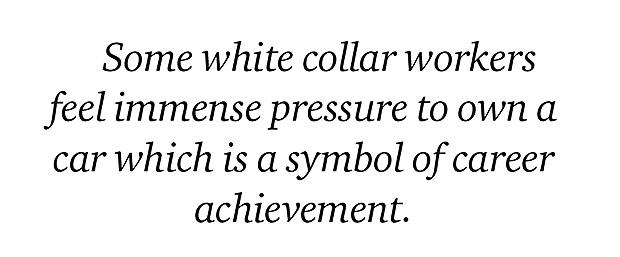
The thick haze covering Bangkok and adjacent areas strikes a call for the Thai automobile industry to embrace clean technology -- but it also calls for a major change in our car-loving culture.
The haze, condensed PM2.5, fine particulate matter measuring 2.5 micrometres or less in diameter, can enter deep into human lungs and the blood system, causing risk of premature death from respiratory infections, lung cancer, and cardiovascular disease.
The sources of PM2.5 are still being debated among authorities who have blamed factories, construction sites, agricultural burning in neighbouring countries, or even grilled-meat vendors. But many scientific studies of air pollution in cities across the world, including research gathered by the World Health Organisation, indicate that traffic is the major contributor to urban ambient air pollution from PM2.5 as a result of combustion in fossil fuel car engines.

Paritta Wangkiat is a columnist, Bangkok Post.
Such research is relevant to Bangkok, a city with over 10 million vehicles. As of Dec 31, the Department of Land Transport's data shows 60% of vehicles on the capital's roads are sedans, vans, and pickup trucks. In 2018 alone, more than 970,000 new vehicles were registered in Bangkok. One-third accounts for personal cars.
Poor urban planning with inefficient mass transit forces many residents to own vehicles. Over past decades, the state has adopted an American car-based city model with the expansion of road networks. Some areas are unreachable by mass transit networks.
At the same time, successive Thai governments have tacitly encouraged the use of private cars as they award the automobile industry with support measures. After the 1997 financial crisis, the state promoted the automobile sector aggressively by offering privileges and incentives to attract foreign investment. The industry has contributed to more than 10% of GDP.
A Krungsri Research report last year showed the country produced 1.99 million cars in 2017, rising from 0.36 million in 1997. About 46% of the production in 2017 was for the domestic market, the rest exported.
According to the Federation of Thai Industries, an expansion in the domestic market will attribute to significant growth of the automobile industry for quite some time. But as the country faces an air pollution crisis, there emerges a need for a revolution in the automobile industry by speeding up its transition to clean energy technology.

The government has started to support electric vehicle (EVs) production, with the implementation of an action plan from 2016 to 2036 that aims to increase EVs by up to 1.2 million units at the end of the plan.
But this transition is painfully slow. One of the reasons is the lack of technology for producing affordable EVs and batteries. The industry is also being held back by some business elements who do not welcome the transition, but want to maintain the "business as usual" production method.
Aggressive marketing tactics only means there will be more, not fewer, cars on the roads.
It's not easy to turn around such a trend, given that we are a car-loving country by culture.
For many Thais, cars are not just a must-have item for mobility in poorly planned cities. The vehicles symbolise social status. It's not unusual for a family to have more than one car.
A 2016 viral clip showed Thai TV programme host Akanat "Nott" Ariyaritwikul punching a motorcyclist and forcing him to kraab his luxury Mini car following a minor crash. This is one of the many incidents that show how some car owners regard themselves as superior in Thai society.
In fact, some white collar workers feel immense pressure to own a car which is a symbol of career achievement.
I came across some young officers workers who, despite their meagre salaries and living in locations that are accessible by a mass transit system, still want to own a car.
We will need more time before we can change this car-loving culture. But the government must do whatever it can to force the change, by improving the mass transit system, and introducing measures that encourage car owners to abandon their vehicles, especially in the areas where rail systems are provided.
We need a new social value that encourages people to embrace a green lifestyle.
Otherwise, the roads will be always filled with cars, and the air will always be filthy.
Paritta Wangkiat is a columnist, Bangkok Post
